Call for Justice over Police Killings: The huge media outcry over the charging of a police officer for murder over the killing of Chris Kaba is a reminder to me that thousands have died in police custody, in prison, immigration detention and secure psychiatric hospitals, many under very suspicious circumstances, almost certainly over 2000 since 1990.
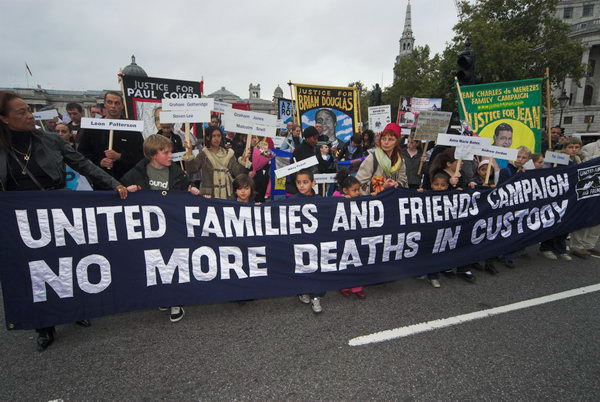
Official figures fail to record many of these deaths has having taken place in custody and those responsible have often lied or withheld evidence. Investigations have often been superficial and some inquests, rather than attempting to get at the truth have been used to hide it.
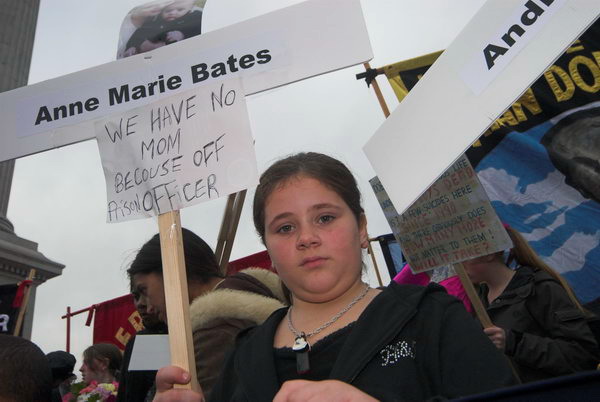
The Kaba case is something of a landmark and while the officer concerned remains innocent until proved guilty, if convicted he will be the first to be found guilty of either murder or manslaughter for such a death. Although it seems obvious that the police should be held responsible for their actions, until now our justicve system has failed to do so.
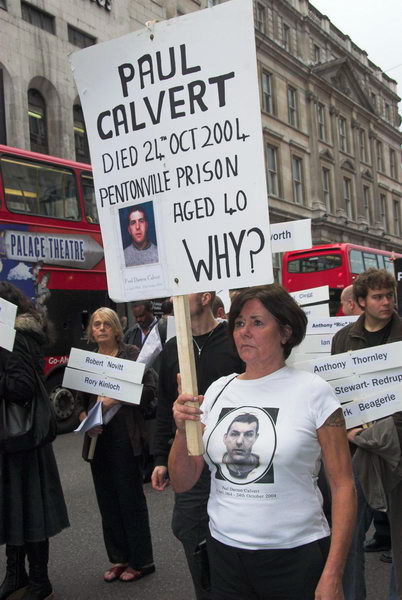
Earlier this month, the IOPC (Independent Office for Police Conduct) published a letter to the family of Sean Rigg, making a unreserved apology for the failures in investigating his death in Brixton Police Station in August 2008. It was an apology which only came about after 15 years of determined campaigning and investigation by the family, particularly Sean’s sister Marcia, doing much of the job the police should have themselves done and being met by lies, deceit and cover-up.
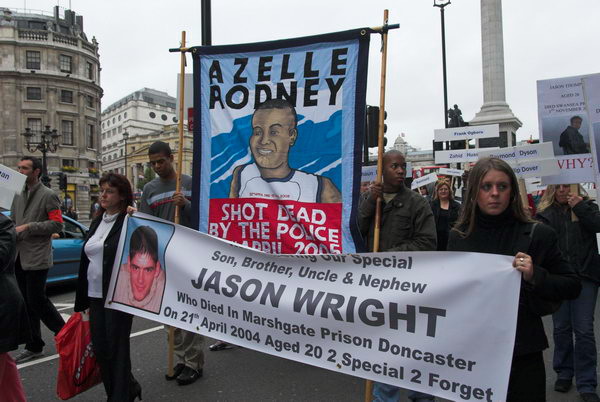
This apology was also a first, and many other families are still waiting for any semblance of justice and with little hope of ever receiving it.

Policing isn’t an easy job, but it isn’t made easier by some of the actions of the police and the institutional failures, including racism. Policing in the UK is meant to be by consent, but that is a consent that has to be earned, and one that is squandered by failures to properly respond to complaints and investigate the actions of officers.
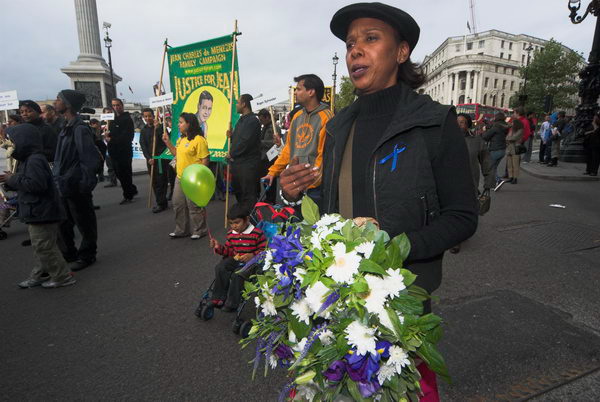
Every year since 1998, the United Families and Friends Campaign (UFFC), a coalition of families of people killed by police, in prisons, in immigration detention and in secure psychiatric hospitals have met in Trafalgar Square and made a march of remembrance to a rally opposite Downing Street. Most years I’ve taken part and photographed this, and the pictures in this post come from the march on 28th October 2006.
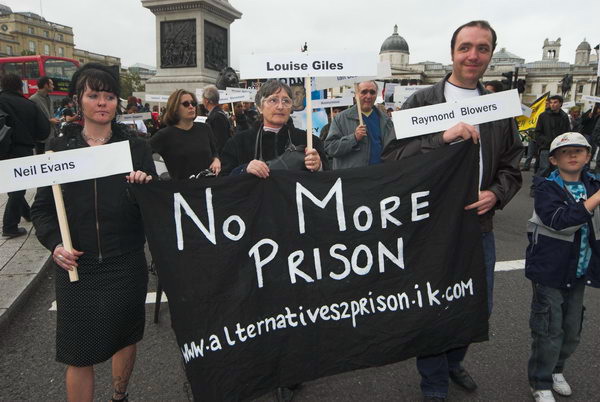
You can read what I wrote then about this some way down the My London Diary October 2006 page, and I won’t repeat it here. There are of course a few more pictures too, linked from there, though you can also go directly to them.
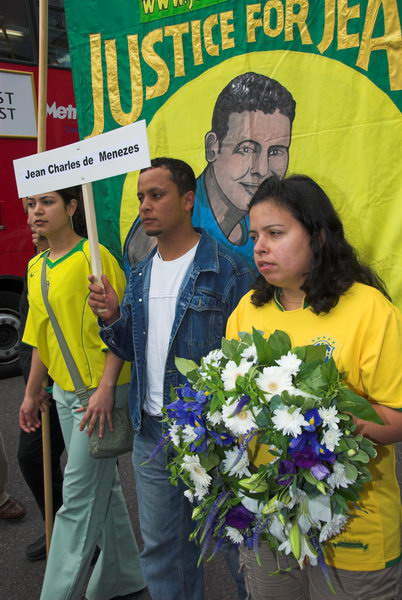
But there are some particular things I’d like to point out about that year’s march. Firstly is that among those taking part were members of the Family of Jean Charles de Menezez, the Brazilian electrician shot without warning as he sat peacefully in an Underground train at Stockwell Station. The woman who ordered this murder was later rewarded with various promotions and honours and cleared at a trial of any personal culpability for his death and rose to become Commissioner of the Metropolitan Police and was honoured for her service.
On her watch we saw the first plans for patrols in the UK by armed police, increased use of controversial stop and search powers, live facial recognition, the heavy handling of a vigil for Sarah Everard, various failures to implement reforms and obstruct the course of justice in cases involving the police.
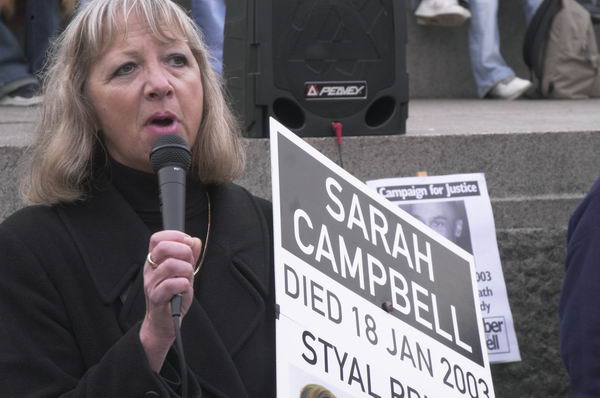
Also taking part in 2006 was Pauline Campbell, whose daughter Sarah Campbell died in Styal Prison in 2003, who told us that home office had finally admitted responsibility for the death of her daughter. The death of her daughter drove her to become a powerful and persistent campaigner taking direct action against the increasing number of deaths of women in custody. But Pauline’s story had a tragic end when her body was found on her daughter’s grave after committing suicide on her daughter’s birthday in 2008.